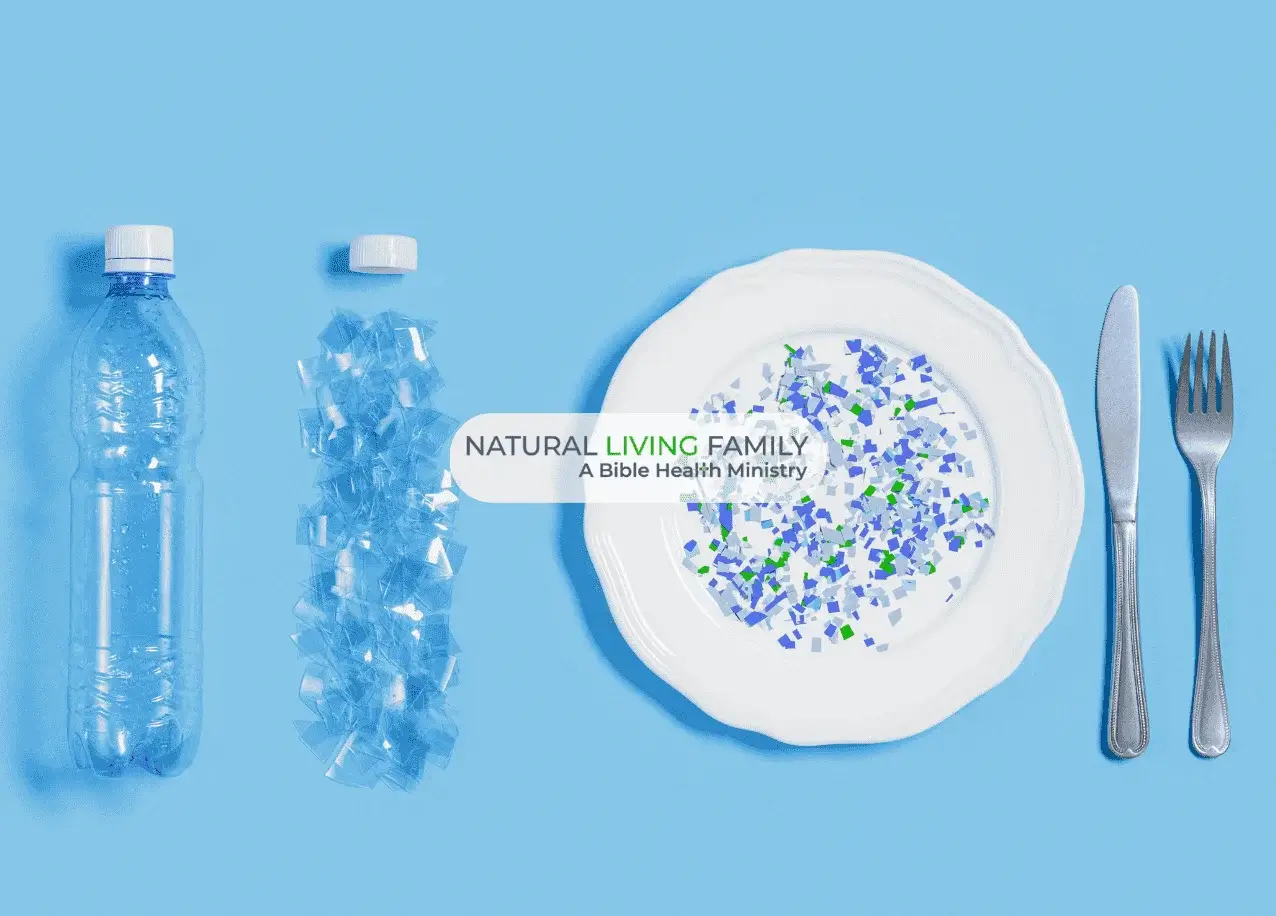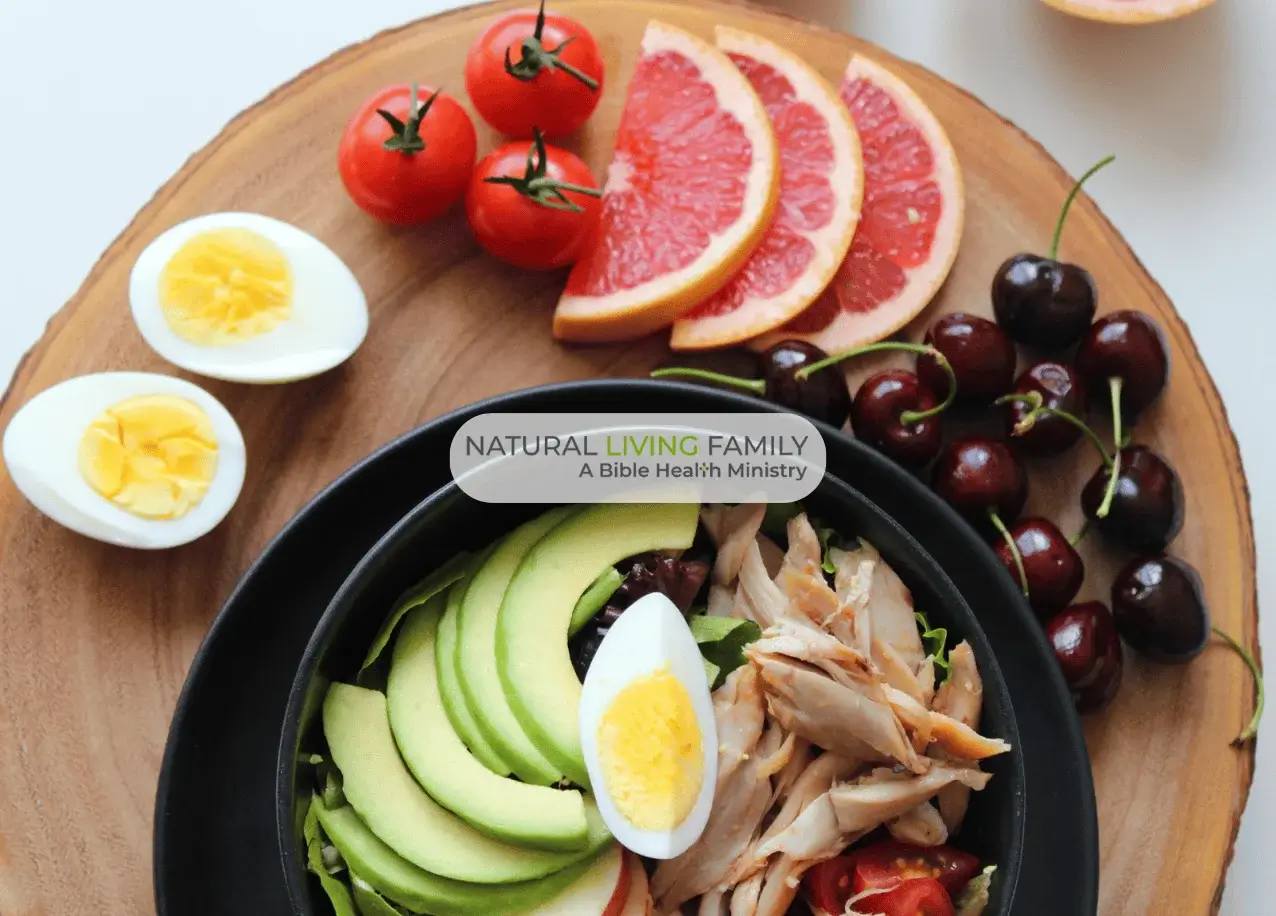The benefits of olive oil are profound, and it has enjoyed an enormous resurgence in popularity in recent years. As people adopt a more natural (Biblical) lifestyle, the consumption of this oil has increased. Olives and oil are repeatedly mentioned in the Bible as a tangible representation of wealth, health, royalty, wholesomeness, and even good grooming.
The high level of polyphenols in olive oil helps fight oxidative damage, lowers the risk of heart disease, and eases high blood pressure. That’s why we believe high-quality olive oil should be in everyone’s pantry!
Table of Contents
What are “Good Fats” and “Bad Fats”?
What did they know then about the health benefits of olive oil that we don’t know today? Probably not much—prior to modern oil extraction methods, olives were easy to press with primitive equipment mechanically. And both wild and cultivated olive trees were extremely prolific in the holy land.
On the other hand, with the benefit of hindsight, we can easily point out God’s provision for his people’s health in the form of fresh, pressed olive oil.
Wait, isn’t fat bad for me?
Most adults today grew up knowing that aerobic exercise is good for us and that fat is bad for us. It was the basic prescription for weight loss, except it didn’t always work. So, how can olive oil be beneficial?
The truth is, there are good fats! Essential fats are actually necessary for proper metabolic function, and keeping a balanced total amount of fat in your diet is necessary for brain development and hormonal balance. Clearly, a diet that is excessive in any type of fat is unbalanced and brings negative health consequences, but enjoy reasonable portions of healthy fats every day!
Labeling some fats as “good fats” implies that there are also “bad fats.” Unfortunately, it is not so simple to describe the entire nutritional profile of any food as simply good or bad. It is more accurate to think of fats (and most other foods) as if they are on a scale of more nutrient-dense to less nutrient-dense. Olive oil is very close to the top of the health scale of edible fats.
What are the Different Types of Oils?
What makes some oils and fats better than others? One factor is what type of fat you are eating. Are your oils mono-unsaturated fatty acids (MUFAs) or poly-unsaturated fatty acids (PUFAs)? What’s the difference? PUFAs are less likely to oxidize into harmful free radicals than MUFAs, especially at high heat, although both provide important nutrients.
- MUFAs are high in most fruit oils, including extra virgin olive oil, coconut oil, avocado oil, and even canola oil. MUFAs are always good for lower-heat cooking, dressing, and marinating. Some are also ok for higher-heat cooking, just check the smoke point—the higher the better.
- PUFAs are high in oils that also have a higher omega 6 to omega 3 ratio(not great), such as grain oils like corn oil and vegetable/ soy oil. These oils oxidize fast unless they are highly refined. This is why manufacturers choose to refine them, removing most nutrients. This refining process also gives them a very high smoke point, making them favorites for deep frying.
Saturated fats, such as lard and butter, present an entirely different nutrient profile that is not without its benefits, such as probiotics and beta carotene, nor without its risks, such as arterial harm. If some oils are better and some worse, nutritionally, what justifies the label “ugly”?
5 Health Benefits of Olive Oil
Amazing health benefits have been studied, but this oil may be even more important for what it doesn’t do, which is to clog your arteries and raise your cholesterol. This is common of many fats and oils currently used for cooking in our modern dietary patterns. Olive oil is actively healing for many systems of your body, including your heart, pancreas, endocrine system, and gut biome! It adds luxurious richness to your diet without the health problems most commonly associated with indulging in rich foods.
1. Beneficial in Overall Diet
One of the ways we often see olive oil used is in a Mediterranean-style diet. As part of the Mediterranean-style diet, it has been shown to prevent colorectal cancer, reduce the signs of aging, and lower the incidence of type 2 diabetes compared to a low-fat diet, even with no calorie restriction. (5-8)
Other dishes that highlight olive oil include salad dressings such as vinaigrettes, toppings, or dipping oil for bread like garlic oil, homemade mayonnaise, and oil-rich cakes. Use it to replace cooking oil for all but the highest heat applications (like deep frying).
Try fresh-pressed olive oil for $1 direct from the growers!
2. Medical Concerns & Inflammatory Diseases
The benefits of olive oil are seemingly endless. No wonder it has achieved superfood status.
- Bone Health – Studies show the oil helps prevent osteoporosis but without the estrogenic side effects of many other treatments. (9)
- Inflammatory Diseases – Olive oil has anti-inflammatory properties that make it an analgesic (helps stop pain) and cancer fighter. (10)
- Heart Health – People have switched from unhealthy oils to olive for years to improve heart health, but a recent study shows it can make a difference whether the subject’s diet is healthy or obesity-causing. Regular consumption of olive oil may also improve endothelial function and inflammation and reduce inflammation in the prevention and treatment of coronary heart disease. (11-12)
- Pregnancy & Infants – Extra virgin olive oil can even help birth outcomes and child development. When the mother’s diet contains extra virgin olive oil, the birth weight of newborns is improved, and both weight and specific biochemical indicators are still improved in offspring at adolescence compared with mothers who consumed none. (13)
- Immune Boosting – Olive oil is great for improving immunity by working on the gut biome and increasing insulin sensitivity in subjects with metabolic syndrome. (14-15)
- Cancer – Many studies demonstrate olive oil’s significant cancer-fighting benefits. It has antioxidant properties and is antimicrobial and anti-inflammatory. (16) Another study confirms it is both anti-cancer and anti-diabetic while significantly lowering the overall incidence of cancer. (17-18)
Overall, swapping out less healthy oils and fats for olive oil is one of the healthiest moves you can make.
3. Uses for Beauty & Body Care
The benefits of olive oil extend beyond the kitchen table. It has long been a part of beauty treatments. Even scripture mentions it as a hair and skin treatment. A lovely way to protect, soften, and improve the texture of your skin is to apply it with your favorite essential oil blend to wet skin in the shower before towel drying. Use it in this DIY lotion bar to capitalize on the skin-soothing benefits.
Olive oil creates a protective barrier but also penetrates better than coconut oil, which, in turn, penetrates better than grape seed oil and avocado oil. (19) This makes it an important carrier oil for both medicinal and cosmetic use. It has a nourishing effect when applied alone but is also synergistic with other ingredients when blended with other ingredients. (20)
Like both avocado oil and coconut oil, olive demonstrates slight ultraviolet protection; however, none of them are suitable for use as a sunblock when used alone. If you want to DIY a natural sunscreen, you’ll want to include additional, proven ingredients. (21)
A clinical study shows that olive oil used topically or cosmetically, is anti-inflammatory, antioxidant, wound healing, prevents skin cancer, and has a natural antimicrobial activity. That is an impressive array of benefits for a beauty product! (22)
4. Uses for Pet Care
The benefits of virgin olive oil aren’t limited just to humans! It is as good for most pets as it is for you. Always consult your veterinarian first if you have any questions, of course. But it is safely used as a carrier oil for pet-safe essential oils or topical medications that need to be diluted. With fur to contend with, a good, penetrating oil is even more important than it is for human use.
Olive oil can be used alone for relief of hairballs, ear mites, or even mange. Internally, it lubricates the gastrointestinal tract and helps hairballs to pass. Externally, it helps soothe irritation and smother mites. The most popular way to use it for furry friends is to add a drizzle over their food once a week to keep coats shiny and healthy.
5. House Care and DIY Cleaning Ideas
Olive oil is great for natural wood—just be sure not to apply it to floors or other surfaces where a slippery surface could be dangerous. To restore real wood cabinet fronts, mix a tablespoon or two of olive oil with lemon essential oil into vinegar water and buff until the wood is softly shiny. Wipe away any excess. We use it in our Homemade Dusting Spray also!
It also works great in a pinch to replace hardware lubricants, such as to fix squeaky door hinges or free sticky zippers, but you should never use it in engines or machinery. It also loosens semi-dry latex paint for easy cleanup. It even doubles as a subtle shoe polish for real leather.
Kitchen Tip! If you measure the oil first in our naturally healthy recipes, olive oil coats the measuring cups or spoons, keeping other ingredients from sticking. If you have a recipe with honey or syrup, you will get truer measurements by doing your oil first.
Comparison to Other Common Oils
Coconut oil vs olive oil. Both these oils demonstrate significant beneficial effects. Coconut is even believed to improve the experience of Alzheimer’s patients. (23) Both oils contain MUFAs and PUFAs as they are both expressed from fruit; however, olive oil contains far more heart-healthy fats—around ten times as much!
In addition, coconut oil has around ten times as much saturated fat. While virgin coconut oil decreases both total and bad cholesterol, the effects aren’t as marked as what olive oil can do. However, coconut oil helps weight loss via improved calorie burning. Both oils are rich in antioxidant content.
1. Canola Oil vs. Olive Oil
Canola oil can be a sensitive subject—it offers great health benefits but is almost always genetically modified. Canola has been considered an endemic weed in many areas, so pollen spreads from field to field easily on the wind. This means that even strictly organic canola fields are frequently tainted with GMO pollen, which is why many health-conscious people avoid all canola oil. Learn more about the pros and cons of canola oil here.
It’s unfortunate since canola is more prolific and renewable than olive oil, producing a generous harvest from the first growing season, whereas olive trees take years to mature. Canola oil is significantly better for high-heat cooking as well.
Olive oil does have a health edge compared to canola oil, as it is higher in oleoyl serine which prevents cardiovascular disease. (24) Canola is also no match for olive at improving memory, synapse firing, and neuropathology in patients with Alzheimer’s disease. (25)
2. Vegetable Oil vs. Olive Oil
The first thing to understand about vegetable oil is that nearly all products labeled “vegetable oil” are actually genetically modified SOY oil.
Olive oil is superior to soy oil at reducing chronic inflammation. (26) It also reduces or protects against oxidative stress in the heart. (27) It is also significantly better than soy oil nutritionally. (28) Compared to soy oil, it significantly reduces the risk of all causes of mortality, cardiovascular death, general coronary heart disease, high blood pressure, and stroke. (29)
One study comparing extra virgin olive oil to genetically modified soy oil found that the olive oil blocked damage from oxidative stress and protected subjects from chronic diseases, including liver fibrosis, hyperlipidemia, diabetes, and even cancer. No benefit was found from consuming the soy oil. (30)
In fact, soy oil is so reliably and actively harmful that it is used experimentally to damage fertility and induce obesity so that other substances’ healing abilities can be tested on the soy-damaged subjects. (31, 32) In short, olive oil helps, while genetically modified soy harms. (33)
3. Corn Oil vs. Olive Oil
Corn oil, like soy oil, is almost always genetically modified, and thus, it may be difficult to assess the value of non-GMO corn products. Even before the proliferation of GMO corn, olive oil demonstrated significant health advantages.
In one study, a diet high in corn oils caused breast cancer progression, while a diet high in olive oil demonstrated protective factors. (34-35)
The significantly better nutritional profile, especially the higher percentage of MUFAs and antioxidants, makes olive oil a clear winner.
4. Avocado Oil vs. Olive Oil
We’ve touted the health benefits of avocado on this site before. So it’s no surprise that avocado oil may be olive oil’s most serious rival for health-giving culinary oils. They are both excellent for cardiovascular disease prevention and treatment. (36) They also demonstrate a similar protective factor on the liver in the presence of excessively sugary diets (i.e. the typical American diet). (37)
Extra virgin olive oil and avocado oil share a nearly identical lineup of healthy fats and antioxidant activities, so the nutritional benefits are also very similar.
Due to the novelty of avocado oil, fewer studies have documented its health benefits. Avocado oil seems to have an edge in cooking due to its higher smoke point, but olive oil has a superior flavor in low-heat applications such as salad dressings.
5. Butter vs. Olive Oil
Comparing olive oil to butter may seem like an unfair fight despite the fact that they may be used interchangeably in many recipes. It’s true that comparing an animal product such as butter to a plant oil, like olive oil is like apples to oranges. Still, butter, especially from organic, pastured, and grass-fed mammals, offers amazing health benefits.
Famous nutrition-minded doctors(38) actually recommend such high-quality butter as a supplement for dental and brain health. However, one cannot expect similar results from cheap, factory-farmed animal butter. The studies below are conducted with conventional butter, not high-quality organic butter.
Olive oil demonstrates better cancer outcomes than butter. (39) It also has better cardiovascular health markers. (40)
Butter—even conventionally farmed butter, can help prevent prediabetic markers, including hyperinsulinemia, and may improve the cholesterol profile. (41) In fact, butter may lower diabetes long-term when replacing other fats. (42) Still, olive oil is better at improving diabetes markers and cardiovascular markers than butter. (43)
Most researchers agree that butter itself is not unhealthy. (44) Still, replacing a significant percentage of your dietary butter and high-cholesterol foods with olive oil may improve many health conditions, including male infertility. (45)
Olive oil is really one of the most healing, beneficial oils you can use, whether in topical or culinary applications. If you aren’t using it yet, find a trusted source and enjoy some delicious, healthy recipes with it today!
Olive Oil Adulteration
Fake, adulterated oils that are not what they claim to be are, unfortunately, very common. Authorities estimate that up to 80% of regular olive oil sold in the United States is adulterated or mislabeled chiefly by the Italian agri mafia. (1-2) Diluting refined olive oil with other, cheaper, and less nutritious oils is so widespread that researchers have developed and trialed complex new detection methods. (3-4)
Sorry to burst any bubbles, but the refrigerator test (i.e. olive oil solidifying when placed in the fridge) we read so much about online is not an accurate evaluation of whether or not your olive oil is fake. I contacted my local olive oil supplier to ask him about “tests” that we can do at home to determine if the olive oil we’re buying is the real deal, and he told me there’s nothing we can do.
Just like the home tests people use to try to determine if their essential oils are pure, they won’t work. You need a chemical analysis to see if your olive oil (or essential oils) has been adulterated. There are stamps of approval and label promises, but I don’t trust them. As when choosing the right essential oils, you need to vet your company and find a supplier that you can trust.
- https://www.forbes.com/sites/ceciliarodriguez/2016/02/10/the-olive-oil-scam-if-80-is-fake-why-do-you-keep-buying-it/#7dba36db639d
- https://www.oliveoiltimes.com/olive-oil-business/italy-arrests-33-accused-olive-oil-fraud/55364
- https://www.ncbi.nlm.nih.gov/pmc/articles/PMC3884608/
- https://www.ncbi.nlm.nih.gov/pmc/articles/PMC4613234/
- https://www.ncbi.nlm.nih.gov/pmc/articles/PMC5723389/
- https://www.ncbi.nlm.nih.gov/pmc/articles/PMC5914407/
- https://www.ncbi.nlm.nih.gov/pmc/articles/PMC5199766/
- https://www.ncbi.nlm.nih.gov/pmc/articles/PMC3005482/
- https://www.ncbi.nlm.nih.gov/pmc/articles/PMC4840527/
- https://www.ncbi.nlm.nih.gov/pmc/articles/PMC2967496/
- https://www.ncbi.nlm.nih.gov/pmc/articles/PMC5366364/
- https://www.ncbi.nlm.nih.gov/pmc/articles/PMC4848682/
- https://www.ncbi.nlm.nih.gov/pmc/articles/PMC2874810/
- https://www.ncbi.nlm.nih.gov/pmc/articles/PMC4586551/
- https://www.ncbi.nlm.nih.gov/pmc/articles/PMC5691704/
- https://www.ncbi.nlm.nih.gov/pmc/articles/PMC3317714/
- https://www.ncbi.nlm.nih.gov/pmc/articles/PMC6073199/
- https://www.ncbi.nlm.nih.gov/pmc/articles/PMC3199852/
- https://pubmed.ncbi.nlm.nih.gov/26161938/
- https://www.ncbi.nlm.nih.gov/pmc/articles/PMC5499037/
- https://www.ncbi.nlm.nih.gov/pmc/articles/PMC3263051/
- https://www.ncbi.nlm.nih.gov/pmc/articles/PMC5796020/
- https://www.nia.nih.gov/alzheimers/clinical-trials/coconut-oil-alzheimers-disease/
- https://www.ncbi.nlm.nih.gov/pmc/articles/PMC4959147/
- https://www.ncbi.nlm.nih.gov/pmc/articles/PMC5719422/
- https://www.ncbi.nlm.nih.gov/pmc/articles/PMC5367713/
- https://www.ncbi.nlm.nih.gov/pmc/articles/PMC3283438/
- https://www.ncbi.nlm.nih.gov/pmc/articles/PMC4785465/
- https://www.ncbi.nlm.nih.gov/pmc/articles/PMC4198773/
- https://www.ncbi.nlm.nih.gov/pmc/articles/PMC4073157/
- https://www.ncbi.nlm.nih.gov/pmc/articles/PMC5624939/
- https://www.ncbi.nlm.nih.gov/pmc/articles/PMC4576505/
- https://www.ncbi.nlm.nih.gov/pmc/articles/PMC4647821/
- https://www.ncbi.nlm.nih.gov/pmc/articles/PMC4581736/
- https://www.ncbi.nlm.nih.gov/pmc/articles/PMC4875377/
- https://www.ncbi.nlm.nih.gov/pmc/articles/PMC5490577/
- https://www.ncbi.nlm.nih.gov/pmc/articles/PMC4016882/
- https://www.westonaprice.org/
- https://www.ncbi.nlm.nih.gov/pmc/articles/PMC2362347/
- https://www.ncbi.nlm.nih.gov/pmc/articles/PMC5855206/
- https://www.ncbi.nlm.nih.gov/pmc/articles/PMC4364335/
- https://www.ncbi.nlm.nih.gov/pmc/articles/PMC4515873/
- https://pubmed.ncbi.nlm.nih.gov/26040366/
- https://www.ncbi.nlm.nih.gov/pmc/articles/PMC4927102/
- https://www.ncbi.nlm.nih.gov/pmc/articles/PMC5578091/











